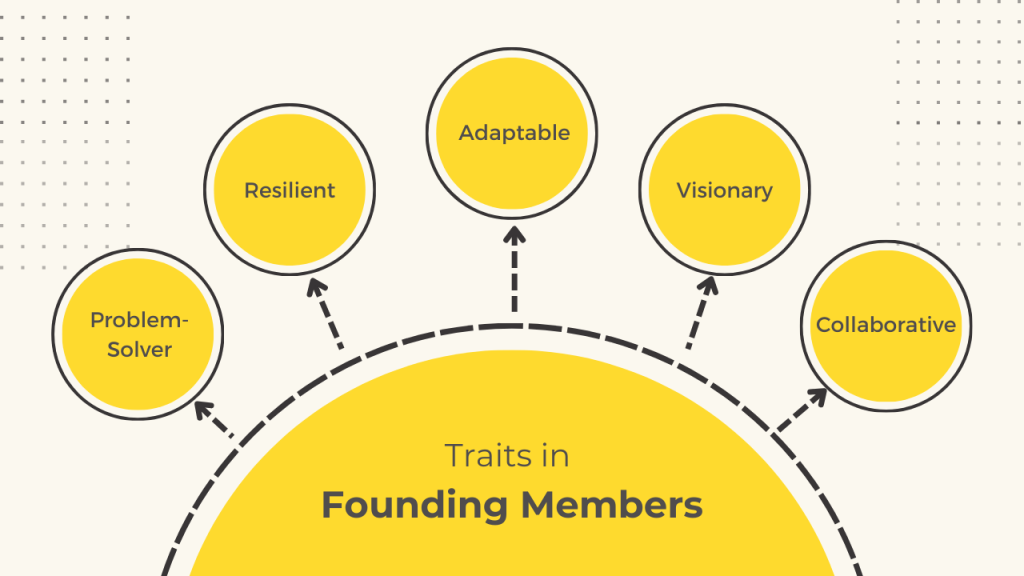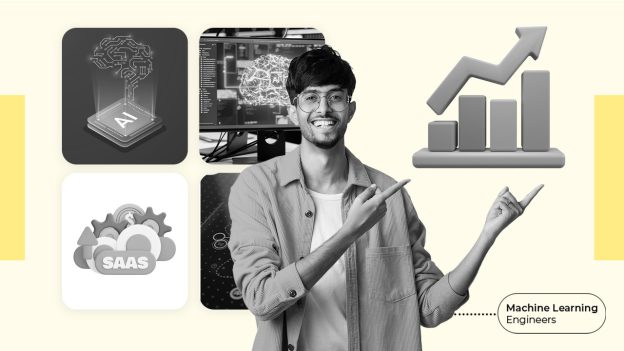Let’s face it—the world of SaaS startups is fast, unpredictable, and often messy. You’re constantly juggling priorities, pivoting strategies, and dealing with new challenges every day. These early hires don’t just contribute—they shape your company’s DNA. From setting the tone for decision-making to influencing how challenges are tackled, they leave a lasting imprint.
But here’s the big question: How do you hire the right people who can not only survive but thrive in this high-pressure environment?
It’s not just about technical skills or fancy resumes. What really makes the difference are the behavioral traits that define someone’s ability to adapt, collaborate, and lead in ambiguity. These are the founding members who will shape your company’s culture and drive its growth.
Why Founding Members Matter More Than Ever
Think of your founding members as the backbone of your startup. They’re not just building the product—they’re setting the tone for how your company operates, solves problems, and scales. Every decision they make, every behavior they exhibit, becomes part of your company’s DNA.
Living the Values
Values aren’t just words on a mission statement—they’re actions you see every day. Your founding members either reinforce or erode these values with every decision they make.
If innovation is your cornerstone, you need problem solvers who are curious and proactive. If collaboration matters, look for people who elevate those around them while tackling challenges together.
Thriving in Ambiguity
Startups are chaotic by nature. There’s rarely a clear roadmap, and decisions often need to be made with incomplete information.
The people who thrive in ambiguity are the ones who step forward when others hesitate. They don’t just adapt to change—they drive it. Founding members who embrace uncertainty inspire the rest of the team to keep moving forward, no matter how unclear the path may seem.
Shaping the Culture
Your founding engineers and leaders will establish how your team makes decisions, resolves conflicts, and celebrates wins. Their habits and behaviors will set the tone for everyone who joins after them.
The first 10 hires don’t just build the product—they build the company.
Traits to Look for in Founding Members
Forget about resumes and degrees for a second. What really matters are the traits that define how someone thinks and behaves in challenging situations. Here’s what you should look for:

1. Problem-Solver
Your founding members need to approach challenges with creativity and ownership.
Problem solvers don’t just see what’s broken—they fix it. They turn obstacles into opportunities.
Look for people who:
- Actively identify solutions.
- Take initiative without waiting for instructions.
- Are resourceful and resilient.
2. Resilient
Your team must be okay with making decisions even when they don’t have all the answers. Test this trait by asking about real-world scenarios where clarity was limited.
The stakes are always high in a startup. You need people who can handle the pressure without losing focus.
3. Adaptable
Startups are fast. The ability to balance speed with precision is key.
Speed is essential, but not at the cost of focus. The best hires know when to act fast and when to take a moment to think.
4. Visionary
It’s not about hiring people who fit in. It’s about hiring those who elevate your culture and align with your vision. Ask yourself: Can this person help shape the culture we aspire to build?
5. Collaborative
Collaborative founding members foster open communication, encourage diverse perspectives, and work seamlessly with others to achieve collective goals.
How to Hire the Right People?
Rushing to fill roles can lead to costly mistakes. Instead, take a thoughtful approach:
- Go Beyond the Resume: Focus on how candidates approach problems and think on their feet.
- Test Real Scenarios: Create role-specific challenges to evaluate how they perform under pressure.
- Think Long-Term: Prioritize candidates who will scale with your company and help shape its future.
Every misstep in early hiring compounds down the line. Take the time to get it right.
The Ripple Effect of Founding Members
The founding members you hire today will shape your startup’s trajectory for years to come. Their mindset, problem-solving approach, and cultural influence create a ripple effect that defines your company’s success.
SaaS startups aren’t about avoiding problems—they’re about solving them. Hire people who embrace challenges, thrive in ambiguity, and align with your vision. These are the individuals who will set the stage for scalable growth and continuous innovation.
The DNA of your founding members becomes the DNA of your company. Hire wisely—because they’re the ones who transform your vision into reality.















